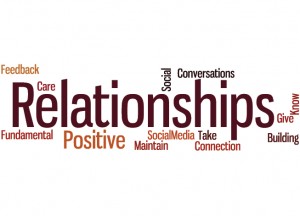Kedoshim
Kadosh, Holy, is a very difficult word to define; yet one we use often in spiritual conversation and prayer. Holiness is the key that brings together all the diverse laws of the world into something sacred. The type of consecrated, set aside for those who follow the Old Testament and seek God through ethical, moral commandments.
In this week’s double parashah- Achre mot/ Kedoshim We are taught that Kedoshim Thiyu, Ki Kadosh Ani Adonai Eloheim from Exodus 19:2. Through the years, many have been challenged by the text of the Torah and they create layers of meaning.) You (plural) shall be holy because I, Adonai, your God am holy. You, the individual, shall all be holy because I, your God is Holy.
From our Torah: Kedoshim- You shall be Holy: revere your mother and your father, keep Shabbah, do not turn to idols, when you make a sacrifice- do it well, do not reap the corner of your field, do not steal, do not cheat, do not lie, pay your laborer on the same day, do not insult the deaf or put a stumbling block before the blind, do not render an unfair decision, do not hate your kinsfolk in your heart, do not take vengeance or bear a grudge, do not sow your fields with two different types of seed, when a man rapes a slave woman who belongs to another- he shall bring her to the tent of meeting so he can be forgiven… you shall rise before the aged and show deference to the old, do not wrong the stranger in your land, if you insult your father and your mother, you shall be put to death, if a man commits adultery with the wife of his fellow Israelite, they shall be both put to death.
Kadosh can therefore mean different things: sacred, unique, divine, complete, to separate and to be both positive and negative; this is why parashah Kedoshim is the center of the Torah and called the “holiness code”. Living a life with commandments and rules makes for a healthy community and internally healthy people; but, these are God’s rules, not ours. Kedoshim tells us that we must be put to death for insulting our mother or our father. What does God mean with this statement of fact? What does insult mean here? If we castigate our parents in public, are we to be killed? If we share secrets of private home life, are we to be killed? If a teenager in the midst of teen hood, slams a door in their parent’s face, will that child be killed? One of the laws in this code reminds us that we are not God. Yet we are created in the image of God and try to act as God does. So what does the entire holiness code mean; if we cannot comprehend the ineffable one and the mystery, which surrounds Adonai?
I feel that our only option is try to live by the laws as outlined in Parashah Kedoshim. We try to reside in the world of Middot, ethical laws: treating the poor with dignity, honoring the elderly, treating our neighbors the way we wish to be treated, not to cry guilt before a trial which could prove innocence, trust, try to understand, love.
Living with a sense of holiness is living in the present and not thinking our every move; it is living that we are, where we are. There is a story told that describes a disciple trying to just be.
“Where shall I look for enlightenment? The disciple asked. “Here”, the elder said. “When will it happen?” the disciple asked. “It’s happening right now.” The elder answered. “Then why don’t I experience it?” the disciple persisted. “Because you do not look” the elder said. But what shall I look for? The disciple continued “nothing. Just look,” the elder said. “But at what?” the disciple asked again. “At anything your eyes alight upon,” the elder answered. “But I must look in a special kind of way?” the disciple went on. “No. The ordinary will do, “the elder said. “But don’t I always look the ordinary way?, the disciple said. “No you don’t the elder said. But, why not? The disciple asked. “Because you must be here. You are mostly somewhere else, the elder said.
Joan Chittister in There is a Season
Kedoshim Tiyu… you shall be holy… ki Kadosh Ani, Adonai, Eloheim… because I, Adonai, Your God am holy. Both Judaism and Christianity believe that we are created in the image of God. Therefore our actions resemble the actions of God. The disciple did not understand that being present requires the absence of knowledge. Doing sacred, whether through prayer, interaction with others, or going about everyday life, requires moments of purpose and moments of pure existence.
- How and where do you find moments of holiness?
- What does holiness mean to you?
- Can you be aware of holy in the moment or only upon retrospect?
- Does holiness need to commanded by God or can we find it on our own?
- Why do we need moments of holiness in our lives?
Your answers may provide us all a better understanding of the Holiness Code. Please make your comments known. You are our teachers, and we, are your willing students.








